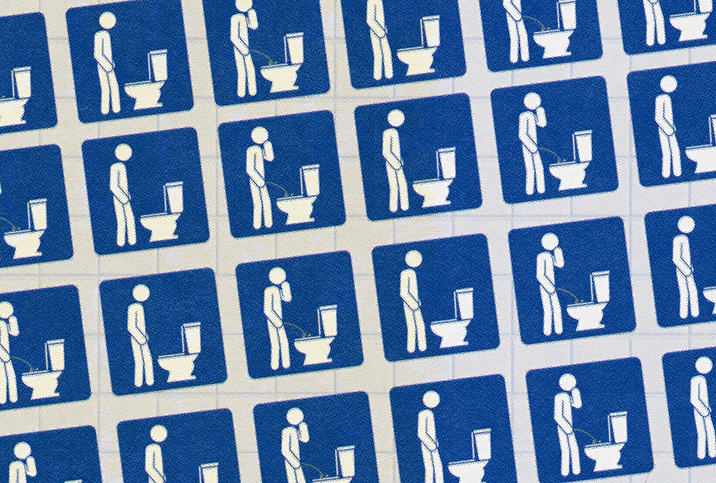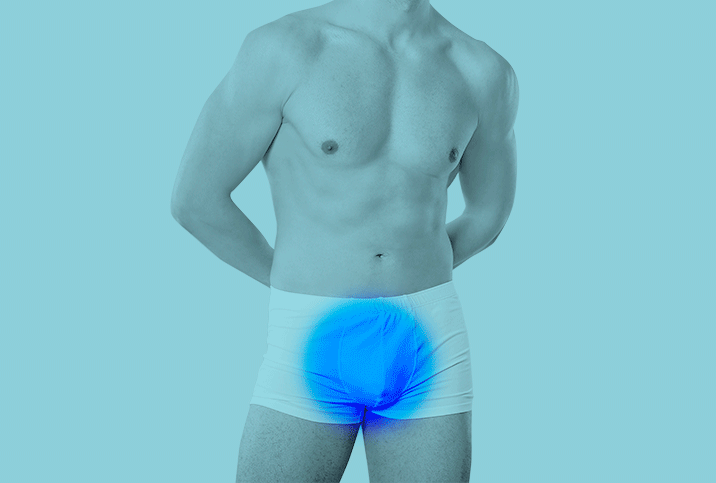What Conditions Impact Blood Circulation and Erectile Dysfunction?

Cardiovascular disease is the leading cause of death in men in the United States. Probably no surprise there. The inability to maintain an erection firm enough for sex is often an early symptom of heart complications. Perhaps a surprise there. This is due to the relationship between blood circulation and erectile dysfunction (ED).
To get an erection, five primary factors are at play, according to Thomas Masterson, M.D., an assistant professor of urology at the Desai Sethi Urology Institute in the Miller School of Medicine at the University of Miami: blood flow, nerves, hormones, relaxation and stimulation.
"If there's a disruption in any one of those five systems, you will have erectile dysfunction," Masterson said. "This is also why your penis is like a barometer for overall health. Erectile dysfunction can actually precede major cardiac events."
For instance, ED in an otherwise healthy man in his 40s can be as reliable a predictor of a potential heart attack as high cholesterol and diabetes.
"Any condition that adversely affects your vascular system will also have some potential impact on the blood vessels to the penis," said Arthur L. Burnett, M.D., a professor of urology at Johns Hopkins School of Medicine in Baltimore.
A disease state that damages blood vessels is a perfect setup for why men have erection difficulties, he added.
Burnett explained things in his book, "The Manhood Rx: Every Man's Guide to Improving Sexual Health and Overall Wellness."
"The penis is a vascular organ, complete with an endothelium [a thin layer of cells that lines bodily organs]. Erections occur because of blood flow and vascular function. The vascularity of the penis, which contains smaller vessels compared to the rest of the body, may exhibit endothelial damage and disturbed vascular function earlier than other parts of the body."
Vascular conditions linked to ED include chronic venous insufficiency, aortic aneurysm, deep vein thrombosis, Raynaud's disease and vasculitis.
Symptoms such as ED can be a warning sign
In terms of conditions that can cause ED, urologist T. Mike Hsieh, M.D., said he most commonly treats diabetes, hypertension (high blood pressure), high cholesterol and kidney disease. Smoking is also strongly linked to ED.
It's common for men to see Hsieh about ED only to discover they have an undiagnosed health problem. Hsieh estimates this is the case for about 30 percent of his ED patients.
"ED is a warning sign for things that people don't even know that they have," said Hsieh, a professor of urology and the director of the Men's Health Center at University of California San Diego Health.
In general, the relationship between vascular conditions and ED has to do with endothelial dysfunction, Hsieh said.
"Endothelial dysfunction is a fancy word for your vascular system not being able to work properly," Hsieh explained. "In a proper situation, the blood vessels in our body can expand and contract in reaction to what your body needs to do."
For example, if you are running, you will need a lot of blood flow to your legs. The arteries expand so that more blood flow can go there. When you don't need blood flow there, the blood vessels return to their regular shape and size.
Similarly, when blood flow is needed for an erection, the blood doesn't get to the penis because the arteries don't expand properly, Hsieh said.
"When you have endothelial dysfunction, your arteries and veins become stiff," Hsieh explained. "It doesn't expand and contract the way that it needs to. When that happens, you have a circulation problem."
Do diabetes and hypertension cause ED?
ED is common in men with diabetes, and the reason for this is two-fold.
"Diabetes is going to affect both the small blood vessels and the small nerves," Masterson explained.
This is why people with diabetes develop retinopathy (vision problems), nephropathy (kidney problems) and peripheral neuropathy, which involves numbness and tingling in the fingers and toes.
"When you have that high blood glucose, your blood is not as effectively delivering oxygen into these small areas, and that's what actually then leads to damage," he said. "The same thing happens with the penis."
The penis has some of the smallest arteries in the body at 1 to 2 millimeters in diameter. Diabetes also damages nerves, and those start the erection process.
"Diabetes can really be a double whammy, because it's affecting both the vascular function of the penis and also the nervous function," Masterson said.
With hypertension, the problem is the arteries become stiff.
"In the process of erections, you have arterial vasodilation, which is what leads to the increased blood," Masterson explained. "People who have chronically high blood pressures don't have that same ability for arterial dilation."
In addition, many blood pressure medications include ED as a side effect, because they reduce blood pressure and may divert blood flow to other areas of the body.
Hypertension, high cholesterol, diabetes and smoking all contribute to atherosclerosis, the build-up of plaque in the walls of the arteries, which obstructs blood flow.
How to prevent issues with circulation and erectile dysfunction
Burnett recommends men protect their vascular health by making healthy lifestyle choices and avoiding smoking.
"Cigarette smoking is a good example of an adverse vascular condition that can lead to vascular damage throughout the body and also contribute to erectile dysfunction," he said.
Exercise regularly, eat a balanced diet with minimal fatty and processed foods, and keep cholesterol levels under control. They all lead to good vascular health. In short, what's healthy for the heart is healthy for the penis.
"Don't even try to get to the point where you need the medications," Masterson said. "Diet, exercise, and avoiding smoking are the obvious answers to a good, healthy, long life. But they can sometimes be the hardest."
Avoid developing high blood pressure and diabetes, and you'll be in a much better place, he said.
A nice part about being a urologist, Hsieh admitted, is that he's in a unique position to encourage men to make lifestyle changes.
"If you tell him, 'If you don't quit smoking and you don't lose weight, you're never gonna get your erection back.' That's a thing that motivates guys," he said. "That's the interesting part about ED or sexual problems—we care about it, even though we should probably care about our heart and strokes and all that stuff, too."
Doctors who treat men with ED should take that opportunity to help them improve their overall health and not just say, "Here's Viagra, and get out of here," Hsieh said.
"Guys are lazy; we don't want to see doctors for anything," he added. "But sometimes, ED is the thing that gets people motivated."


















